Vascular Disease
How to submit an article:
- Registered users can submit any published journal article that has a unique DOI (Digital Object Identifier) name or link to Research Hub.
- For example, you can paste the full DOI link:
https://doi.org/10.1109/5.771073or just the DOI name:10.1109/5.771073into the field above and click submit. - The person who is first to submit a valid article to Research Hub will forever be credited for it, and every article submission earns you +6 Research Points.
Related Topics
Published research studies are articles that present the findings of original research that has undergone a peer-review process and has been made publicly available in scholarly journals, books or other media.

Peanut (Arachis hypogaea L.) seeds and by-products in metabolic syndrome and cardiovascular disorders: A systematic review of clinical studies
2024 Jan Phytomedicine Nunes YC, Santos GO, Machado NM, Otoboni AMMB, Laurindo LF, Bishayee A, et al.
Peanuts and their products, containing phytochemicals, can improve metabolic parameters and have the potential to be used as a sustainable and low-cost alternative for the prevention and treatment of MetS and CVD.
Systematic Review Review Article Peanut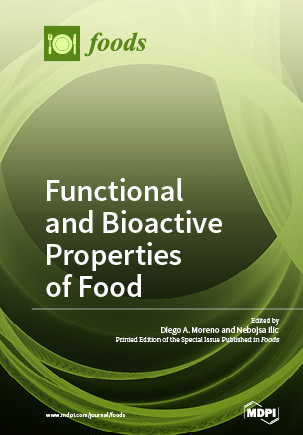
A Literature Review of the Pharmacological Effects of Jujube
2024 Jan 06 Foods Zhu D, Jiang N, Wang N, Zhao Y, Liu X
Review Article Cardiovascular Disease Neuroprotective JujubeJujube, a Chinese native plant with numerous active components, exhibits calming effects, nourishes blood, and strengthens the spleen and stomach, alongside promising neuroprotective and cardiovascular benefits.
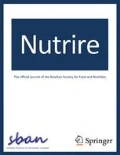
Nutritional and health-beneficial values of almond nuts consumption
2023 Nov 02 Nutrire Ouzir M
Review Article Cardiovascular Disease Cognitive Function Almond Type 2 Diabetes ObesityAlmond consumption has beneficial impacts on cardiovascular diseases, diabetes, obesity, and it can improve cognitive performance and protect against skin aging.
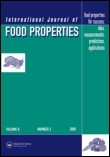
A comprehensive review on the availability of bioactive compounds, phytochemicals, and antioxidant potential of plum ( Prunus Domestica )
2023 Aug 23 International Journal of Food Properties Ayub H, Nadeem M, Mohsin M, Ambreen S, Khan F, Oranab S, et al.
Review Article Bone Health Blood Sugar Antioxidant PlumPlums, which are rich in bioactive compounds, antioxidants, and vitamins, can help maintain blood glucose level, bone health, heart health and even treat certain cancers.

Exploring the Potential Benefits of Natural Calcium-Rich Mineral Waters for Health and Wellness: A Systematic Review
2023 Jul 13 Nutrients Pop MS, Cheregi DC, Onose G, Munteanu C, Popescu C, Rotariu M, et al.
Systematic Review Meta-Analysis Cardiovascular Disease High Blood Pressure Mineral Water Natural Calcium-rich mineral water Bone Health CalciumNatural calcium-rich mineral waters offer a bioavailable calcium source, beneficial for bone health, cardiovascular function, weight management, and overall well-being.
Research insights are moderated by the Research Hub team and offer an at-a-glance overview of interesting research findings.

2024 Foods
Jujube, a Chinese native plant with numerous active components, exhibits calming effects, nourishes blood, and strengthens the spleen and stomach, alongside promising neuroprotective and cardiovascular benefits.
Review Article Cardiovascular Disease Jujube Neuroprotective
A Literature Review of the Pharmacological Effects of Jujube
Zhu D, Jiang N, Wang N, Zhao Y, Liu X

2023 Nutrire
Almond consumption has beneficial impacts on cardiovascular diseases, diabetes, obesity, and it can improve cognitive performance and protect against skin aging.
Review Article Almond Cardiovascular Disease Cognitive Function Obesity Type 2 Diabetes
Nutritional and health-beneficial values of almond nuts consumption
Ouzir M

2023 International Journal of Food Properties
Plums, which are rich in bioactive compounds, antioxidants, and vitamins, can help maintain blood glucose level, bone health, heart health and even treat certain cancers.
Review Article Antioxidant Blood Sugar Bone Health Plum
A comprehensive review on the availability of bioactive compounds, phytochemicals, and antioxidant potential of plum (
Prunus Domestica
)
Ayub H, Nadeem M, Mohsin M, Ambreen S, Khan F, Oranab S, et al.

2023 Nutrients
Natural calcium-rich mineral waters offer a bioavailable calcium source, beneficial for bone health, cardiovascular function, weight management, and overall well-being.
Systematic Review Bone Health Calcium Cardiovascular Disease High Blood Pressure Mineral Water
Exploring the Potential Benefits of Natural Calcium-Rich Mineral Waters for Health and Wellness: A Systematic Review
Pop MS, Cheregi DC, Onose G, Munteanu C, Popescu C, Rotariu M, et al.
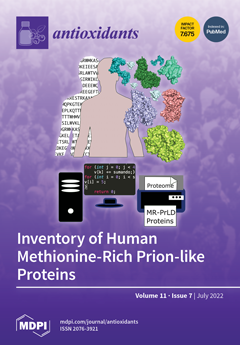
2023 Antioxidants
Pomegranate and its components could offer considerable potential as dietary supplements or supports in treatment for cardiovascular and non-cardiovascular diseases.
Review Article Cardiovascular Disease Pomegranate
An Overview of the Health Benefits, Extraction Methods and Improving the Properties of Pomegranate
Benedetti G, Zabini F, Tagliavento L, Meneguzzo F, Calderone V, Testai L
Review Articles
Review articles summarise and critically evaluate the current state of research on a specific topic or field by synthesising multiple primary research studies.

Peanut (Arachis hypogaea L.) seeds and by-products in metabolic syndrome and cardiovascular disorders: A systematic review of clinical studies
2024 Jan Phytomedicine Nunes YC, Santos GO, Machado NM, Otoboni AMMB, Laurindo LF, Bishayee A, et al.
Peanuts and their products, containing phytochemicals, can improve metabolic parameters and have the potential to be used as a sustainable and low-cost alternative for the prevention and treatment of MetS and CVD.
Systematic Review Review Article Peanut
A Literature Review of the Pharmacological Effects of Jujube
2024 Jan 06 Foods Zhu D, Jiang N, Wang N, Zhao Y, Liu X
Review Article Cardiovascular Disease Neuroprotective JujubeJujube, a Chinese native plant with numerous active components, exhibits calming effects, nourishes blood, and strengthens the spleen and stomach, alongside promising neuroprotective and cardiovascular benefits.

Nutritional and health-beneficial values of almond nuts consumption
2023 Nov 02 Nutrire Ouzir M
Review Article Cardiovascular Disease Cognitive Function Almond Type 2 Diabetes ObesityAlmond consumption has beneficial impacts on cardiovascular diseases, diabetes, obesity, and it can improve cognitive performance and protect against skin aging.

A comprehensive review on the availability of bioactive compounds, phytochemicals, and antioxidant potential of plum ( Prunus Domestica )
2023 Aug 23 International Journal of Food Properties Ayub H, Nadeem M, Mohsin M, Ambreen S, Khan F, Oranab S, et al.
Review Article Bone Health Blood Sugar Antioxidant PlumPlums, which are rich in bioactive compounds, antioxidants, and vitamins, can help maintain blood glucose level, bone health, heart health and even treat certain cancers.

Exploring the Potential Benefits of Natural Calcium-Rich Mineral Waters for Health and Wellness: A Systematic Review
2023 Jul 13 Nutrients Pop MS, Cheregi DC, Onose G, Munteanu C, Popescu C, Rotariu M, et al.
Systematic Review Meta-Analysis Cardiovascular Disease High Blood Pressure Mineral Water Natural Calcium-rich mineral water Bone Health CalciumNatural calcium-rich mineral waters offer a bioavailable calcium source, beneficial for bone health, cardiovascular function, weight management, and overall well-being.
Clinical Trials
Clinical trials are research studies that involve people and are conducted to evaluate the safety and efficacy of new treatments or interventions, such as drugs, medical devices, or behavioural therapies.
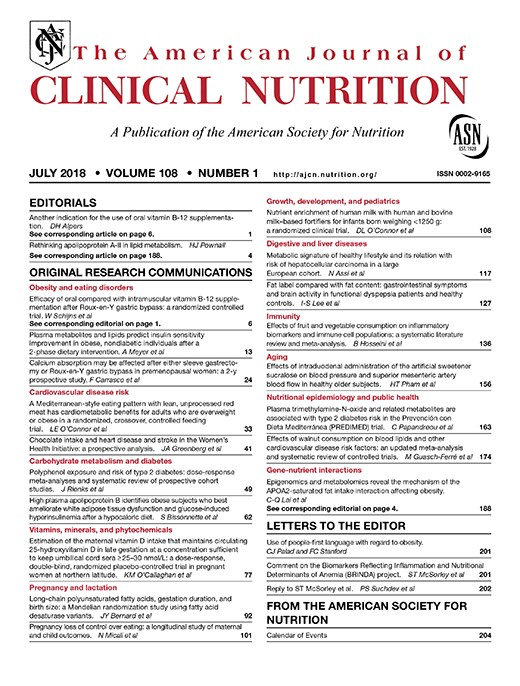
Effect of cocoa flavanol supplementation for the prevention of cardiovascular disease events: the COcoa Supplement and Multivitamin Outcomes Study (COSMOS) randomized clinical trial
2022 Jun The American Journal of Clinical Nutrition Sesso HD, Manson JAE, Aragaki AK, Rist PM, Johnson LG, Friedenberg G, et al.
Randomised Controlled Trial Cardiovascular Disease CocoaCocoa extract supplementation in older adults reduced cardiovascular disease related death rates, but did not significantly lessen total cardiovascular events.

Pecan‐enriched diets increase energy expenditure and fat oxidation in adults at‐risk for cardiovascular disease in a randomised, controlled trial
2021 Nov 28 Journal of Human Nutrition and Dietetics Guarneiri LL, Paton CM, Cooper JA
Daily consumption of pecans may increase select measures of energy expenditure and fat oxidation in adults at-risk for cardiovascular disease.
Randomised Controlled Trial Cardiovascular Disease Energy Expenditure Fat Oxidation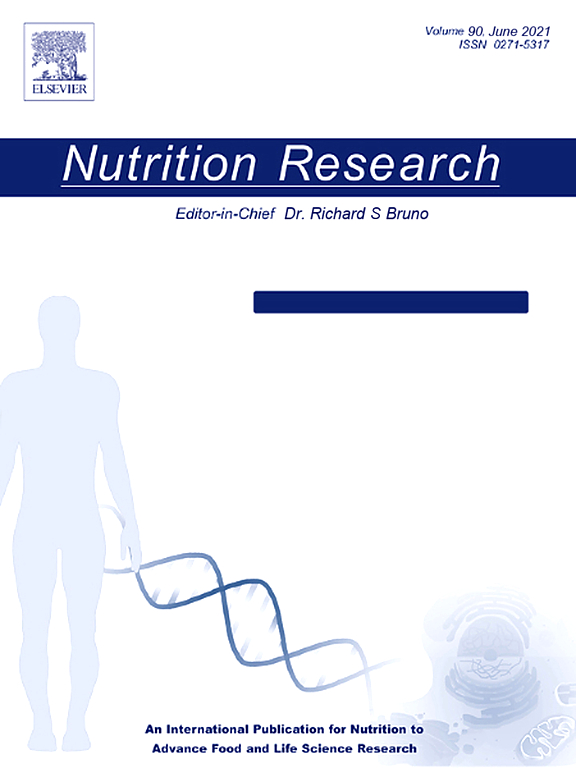
Pecan-enriched diets decrease postprandial lipid peroxidation and increase total antioxidant capacity in adults at-risk for cardiovascular disease
2021 Sep Nutrition Research Guarneiri LL, Paton CM, Cooper JA
Daily pecan consumption, either as part of the diet or as a substitution for isocaloric foods, resulted in suppressed postprandial lipid peroxidation and elevated postprandial TAC. Fasting γ-tocopherol levels also increased in both pecan groups. These findings suggest that regular pecan consumption has a protective effect against oxidative stress following a high-fat meal in adults at risk for CVD.
Clinical Study Randomised Controlled Trial Cardiovascular Disease Oxidative Stress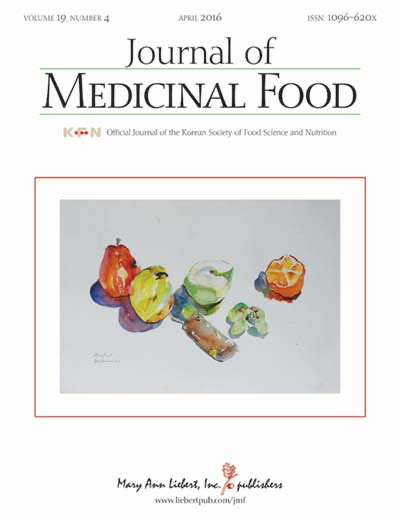
Effects of Montmorency Tart Cherry Juice Consumption on Cardiometabolic Biomarkers in Adults with Metabolic Syndrome: A Randomized Controlled Pilot Trial
2020 Dec 01 Journal of Medicinal Food Johnson SA, Navaei N, Pourafshar S, Jaime SJ, Akhavan NS, Alvarez-Alvarado S, et al.
Randomised Controlled Trial LDL Cardioprotective Effects Atherogenesis Cherry Cardiovascular Disease Metabolic SyndromeDaily consumption of tart cherry juice may reduce processes involved in accelerated atherogenesis, potentially decreasing the risk of cardiovascular diseases.
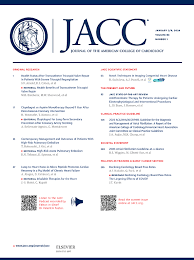
Effects of 2-Year Walnut-Supplemented Diet on Inflammatory Biomarkers
2020 Nov Journal of the American College of Cardiology Cofán M, Rajaram S, Sala-Vila A, Valls-Pedret C, Serra-Mir M, Roth I, et al.
Randomised Controlled Trial Cholesterol Walnut Anti-InflammatoryIncorporating daily doses of walnuts into the diet of elderly individuals significantly reduces the concentrations of several inflammatory biomarkers.
Study Protocols
Published study protocols are detailed plans that outline the objectives, methodology, statistical analyses, and organisation of a research study that have been made publicly available for others to review and use as a reference.
Presentation Slides

Review Article
Jujube, a Chinese native plant with numerous active components, exhibits calming effects, nourishes blood, and strengthens the spleen and stomach, alongside promising neuroprotective and cardiovascular benefits.
Zhu D, Jiang N, Wang N, Zhao Y, Liu X

Review Article
Almond consumption has beneficial impacts on cardiovascular diseases, diabetes, obesity, and it can improve cognitive performance and protect against skin aging.
Ouzir M

Review Article
Plums, which are rich in bioactive compounds, antioxidants, and vitamins, can help maintain blood glucose level, bone health, heart health and even treat certain cancers.
Ayub H, Nadeem M, Mohsin M, Ambreen S, Khan F, Oranab S, Rahim M, Zubair khalid M, Zongo E, Zarlasht M, Ullah S

Systematic Review
Natural calcium-rich mineral waters offer a bioavailable calcium source, beneficial for bone health, cardiovascular function, weight management, and overall well-being.
Pop MS, Cheregi DC, Onose G, Munteanu C, Popescu C, Rotariu M, Turnea MA, Dograru G, Ionescu EV, Oprea D, Iliescu MG, Minea M, Stanciu LE, Silișteanu SC, Oprea C

Review Article
Pomegranate and its components could offer considerable potential as dietary supplements or supports in treatment for cardiovascular and non-cardiovascular diseases.
Benedetti G, Zabini F, Tagliavento L, Meneguzzo F, Calderone V, Testai L

Cohort Study
Heavy coffee consumption increases the risk of cardiovascular disease mortality in individuals with severe hypertension, while green tea consumption does not.
Teramoto M, Yamagishi K, Muraki I, Tamakoshi A, Iso H
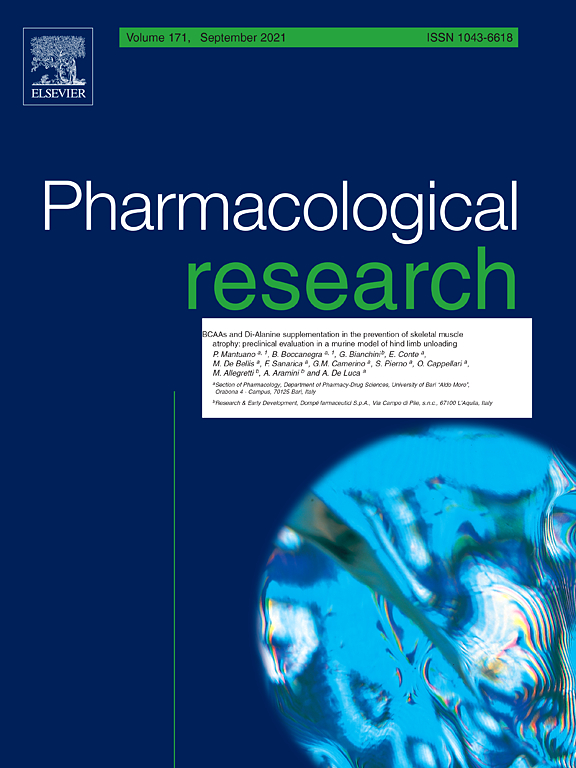
Review Article
Consumption of tea and coffee may possibly provide anti-inflammatory effects, contributing to reduced cardiovascular risk and mortality.
Surma S, Sahebkar A, Banach M
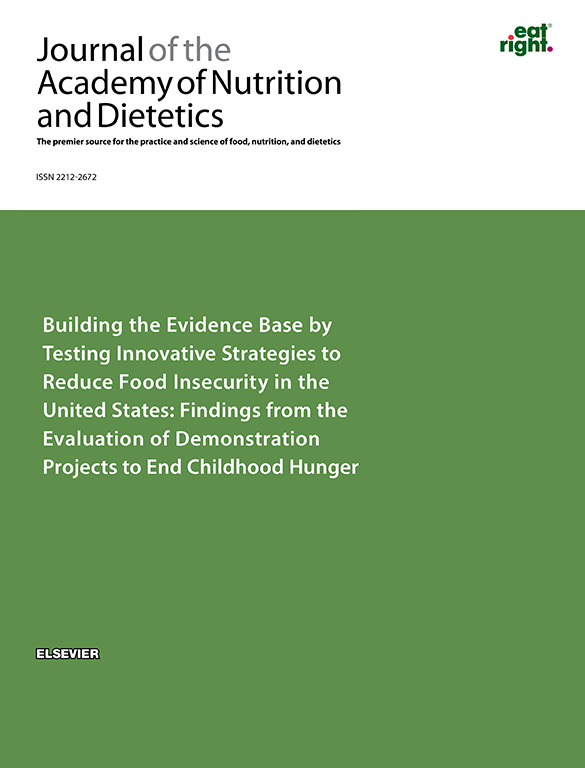
Systematic Review
Avocado consumption may lead to a reduction in total cholesterol and low-density lipoprotein cholesterol levels in people with high cholesterol without impacting body weight.
James-Martin G, Brooker PG, Hendrie GA, Stonehouse W
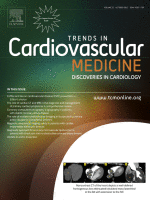
Review Article
Consuming 2-3 cups of coffee daily can help prevent cardiovascular disease and drinking at least 3 cups of green tea has similar benefits.
Chieng D, Kistler PM

Randomised Controlled Trial
Cocoa extract supplementation in older adults reduced cardiovascular disease related death rates, but did not significantly lessen total cardiovascular events.
Sesso HD, Manson JAE, Aragaki AK, Rist PM, Johnson LG, Friedenberg G, Copeland T, Clar A, Mora S, Moorthy MV, Sarkissian A, Carrick WR, Anderson GL

Cohort Study
Eating more avocados, specifically two servings a week, is associated with a significantly lesser risk of cardiovascular disease and coronary heart disease.
Pacheco LS, Li Y, Rimm EB, Manson JAE, Sun Q, Rexrode K, Hu FB, Guasch‐Ferré M

Review Article
Purple carrot roots, rich in bioactive compounds like anthocyanin, may be effective in preventing metabolic syndrome and cancer by reducing inflammation and metabolic changes.
Rasheed H, Shehzad M, Rabail R, Kowalczewski P, Kidoń M, Jeżowski P, Ranjha MMAN, Rakha A, Din A, Aadil RM
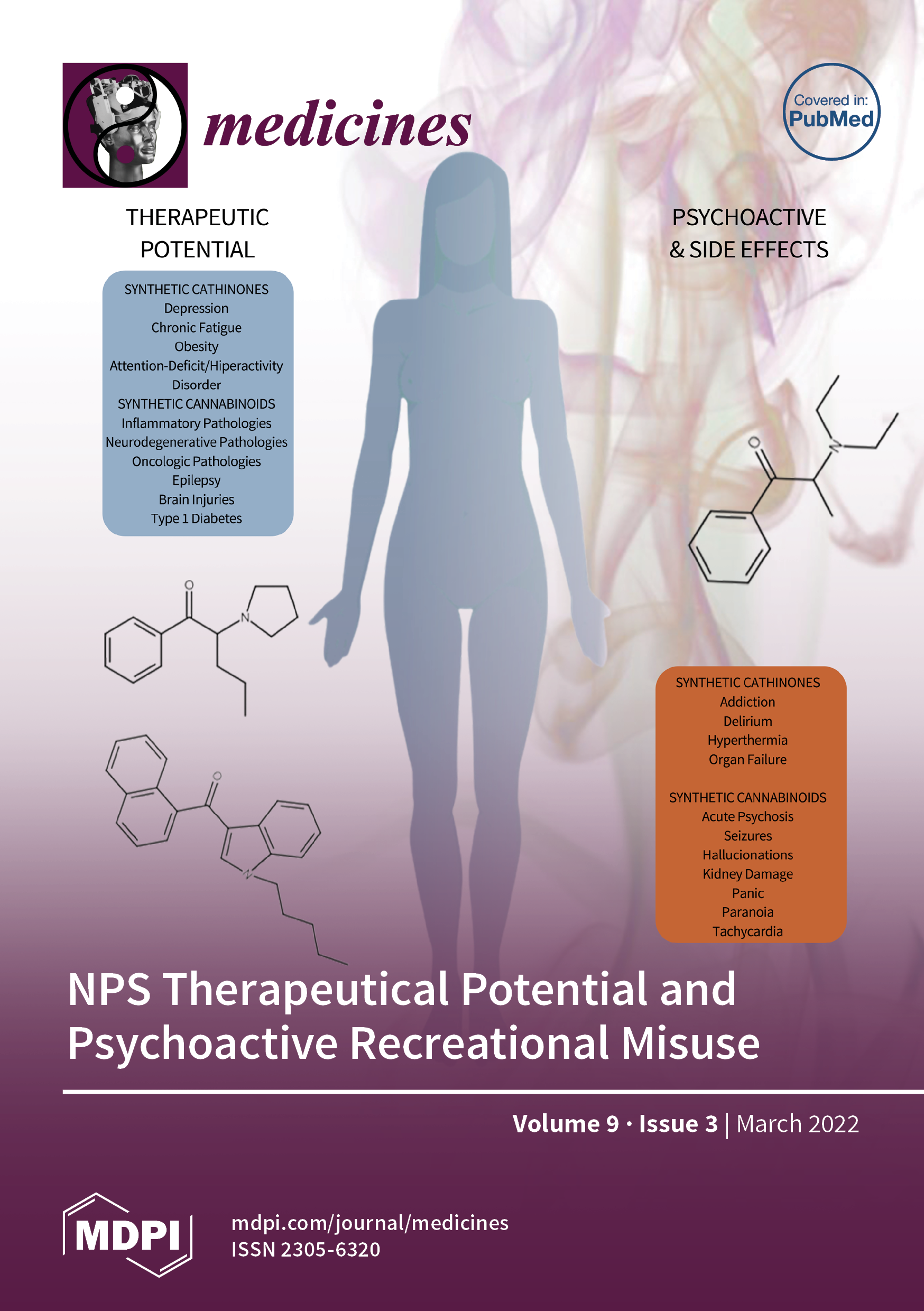
Systematic Review
Wen Dan Tang potentially treats neurological, psychiatric disorders, cardiovascular diseases, and digestive disorders, and might improve life quality in headache patients.
Pradhan SK, Li Y, Gantenbein AR, Angst F, Lehmann S, Shaban H

Review Article
Apple juice consumed in moderation has been found to positively impact markers of cardiovascular health, potentially influencing risk of cancer and neurodegenerative diseases.
Vallée Marcotte B, Verheyde M, Pomerleau S, Doyen A, Couillard C
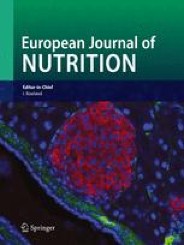
Meta-Analysis
Oat supplementation interventions can improve cardiovascular health markers among adults, regardless of their diet or metabolic conditions.
Llanaj E, Dejanovic GM, Valido E, Bano A, Gamba M, Kastrati L, Minder B, Stojic S, Voortman T, Marques-Vidal P, Stoyanov J, Metzger B, Glisic M, Kern H, Muka T

Review Article
Fresh Hass avocados have been found to reduce cardiovascular disease risk, assist weight loss, improve cognitive function, and promote colonic microbiota health.
Dreher ML, Cheng FW, Ford NA
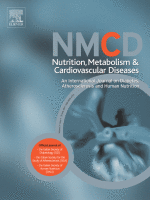
Systematic Review
Drinking coffee may be linked to lower mortality risk in type 2 diabetes patients.
Shahinfar H, Jayedi A, Khan TA, Shab-Bidar S

Cohort Study
Regular consumption of chocolate relates to lowered risk of death from all causes, cardiovascular disease, and Alzheimer’s disease, particularly in non-smokers.
Zhong GC, Hu TY, Yang PF, Peng Y, Wu JJ, Sun WP, Cheng L, Wang CR
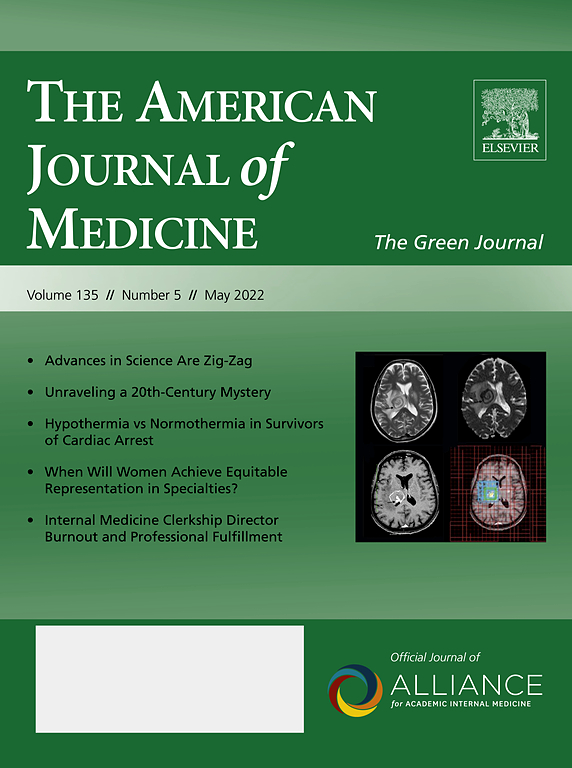
Systematic Review
Coffee consumption, particularly boiled coffee, may increase levels of certain cardiovascular risk markers, but no strong link was found to anti-inflammatory effects.
Daneschvar HL, Smetana GW, Brindamour L, Bain PA, Mukamal KJ

Review Article
Pomegranate has a variety of phytochemicals which possess wide-ranging activities including antioxidant, antimicrobial, anti-oncogenic properties, and resistance to cerebrovascular disease.
Ge S, Duo L, Wang J, GegenZhula , Yang J, Li Z, Tu Y

Systematic Review
Epidemiological studies suggest that the consumption of spicy chilli food is associated with reduced risk of all-cause as well as heart disease–related mortality.
Ofori-Asenso R, Mohsenpour MA, Nouri M, Faghih S, Liew D, Mazidi M.

Review Article
Tian Ma, a traditional Chinese medicine, shows promise as a complementary therapy for aging-related diseases, including Alzheimer's and cerebrocardiovascular diseases.
Heese K
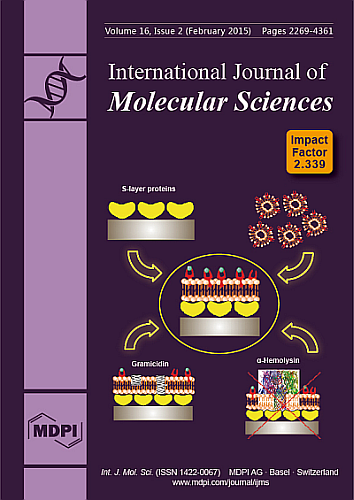
Review Article
Regular coffee consumption, due to its bioactive compounds, may have protective effects against chronic disorders and certain neurodegenerative conditions.
Socała K, Szopa A, Serefko A, Poleszak E, Wlaź P

Randomised Controlled Trial
Daily consumption of tart cherry juice may reduce processes involved in accelerated atherogenesis, potentially decreasing the risk of cardiovascular diseases.
Johnson SA, Navaei N, Pourafshar S, Jaime SJ, Akhavan NS, Alvarez-Alvarado S, Proaño GV, Litwin NS, Clark EA, Foley EM, George KS, Elam ML, Payton ME, Arjmandi BH, Figueroa A

Randomised Controlled Trial
Incorporating daily doses of walnuts into the diet of elderly individuals significantly reduces the concentrations of several inflammatory biomarkers.
Cofán M, Rajaram S, Sala-Vila A, Valls-Pedret C, Serra-Mir M, Roth I, Freitas-Simoes TM, Bitok E, Sabaté J, Ros E

Review Article
Juhua, the flower head of Chrysanthemum morifolium Ramat, possesses multiple medicinal properties and has a significant role in dietary herbal medicine in China.
Yuan H, Jiang S, Liu Y, Daniyal M, Jian Y, Peng C, Shen J, Liu S, Wang W

Meta-Analysis
Supplementation with blueberry shows a potential for beneficial impact on reducing body weight, which might indirectly influence cardiovascular disease risk factors.
Miraghajani M, Momenyan S, Arab A, Hasanpour Dehkordi A, Symonds ME
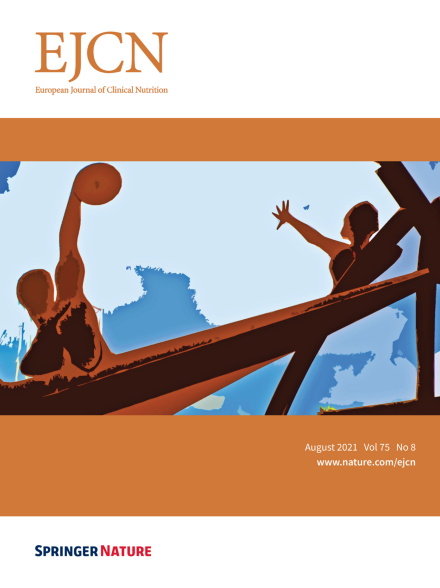
Systematic Review
The literature overall supports an inverse association between green tea and cardiovascular disease-related health outcomes, while the included meta-analyses generally suggested an inverse association between green tea and BMI-related and blood pressure outcomes.
Abe SK, Inoue M

Randomised Controlled Trial
Concentrated pomegranate juice consumption can potentially lower cardiovascular disease risk factors in women with polycystic ovary syndrome.
Abedini M, Ghasemi‐Tehrani H, Tarrahi MJ, Amani R

Meta-Analysis
Chronic consumption of cranberry or cherry juice might considerably improve blood pressure levels.
Wang Y, Gallegos JL, Haskell-Ramsay C, Lodge JK

Meta-Analysis
Pomegranate juice supplementation notably diminishes inflammation and vascular dysfunction markers in adults, offering potential cardiovascular health benefits.
Wang P, Zhang Q, Hou H, Liu Z, Wang L, Rasekhmagham R, Kord-Varkaneh H, Santos HO, Yao G
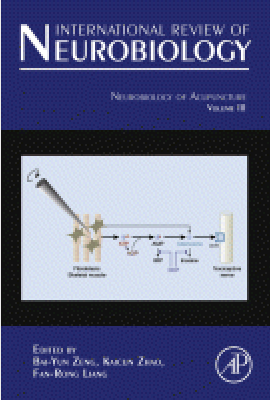
Review Article
The date fruit contains compounds such as flavonoids that can protect tissues from harm and reduce risks of illnesses like cardiovascular disease and cancer.
Bentrad N, Hamida-Ferhat A
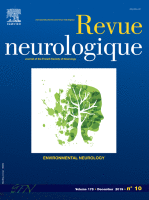
Review Article
The Mediterranean diet, especially the high consumption of extra-virgin olive oil, significantly reduces the risks of vascular diseases and Alzheimer's.
Román GC, Jackson RE, Reis J, Román AN, Toledo JB, Toledo E

Theoretical Article
Consumption of oat β-glucan may lower cholesterol and risk of cardiovascular disease by altering gut bacteria and their effects on bile acid and cholesterol metabolism.
Joyce SA, Kamil A, Fleige L, Gahan CGM
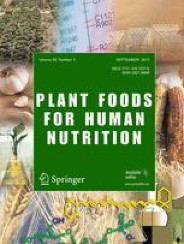
Results demonstrate that 100% watermelon juice is a palatable, effective means of increasing serum lycopene in older adult women, a group at risk for low carotenoid intake.
Ellis, A.C., Dudenbostel, T. & Crowe-White, K
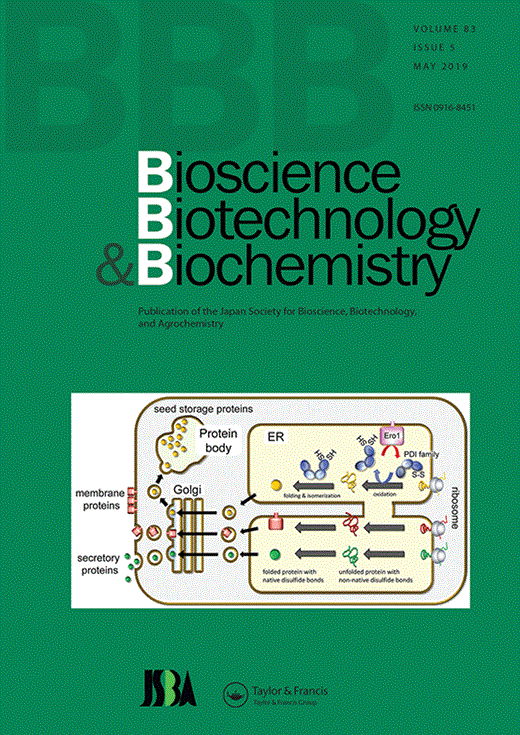
Randomised Controlled Trial
Adzuki bean extract administered once a day can result in increased HDL-C concentration.
Kitano-Okada T, Nagata R, Han KH, Mikami N, Satoh K, Nishihira J, Sasaki K, Ohba K, Fukusima M
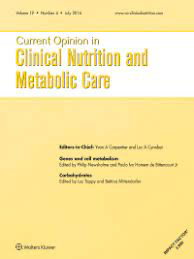
Systematic Review
Most bioactive walnut micronutrients synergize to affect multiple metabolic pathways leading to protection from chronic noncommunicable diseases.
Ros, Emilioa,b; Izquierdo-Pulido, Maríab,c; Sala-Vila, Aleix

Systematic Review
Incorporating walnuts into the diet improved blood lipid profile without adversely affecting body weight or blood pressure.
Marta Guasch-Ferré, Jun Li, Frank B Hu, Jordi Salas-Salvadó, Deirdre K Tobias
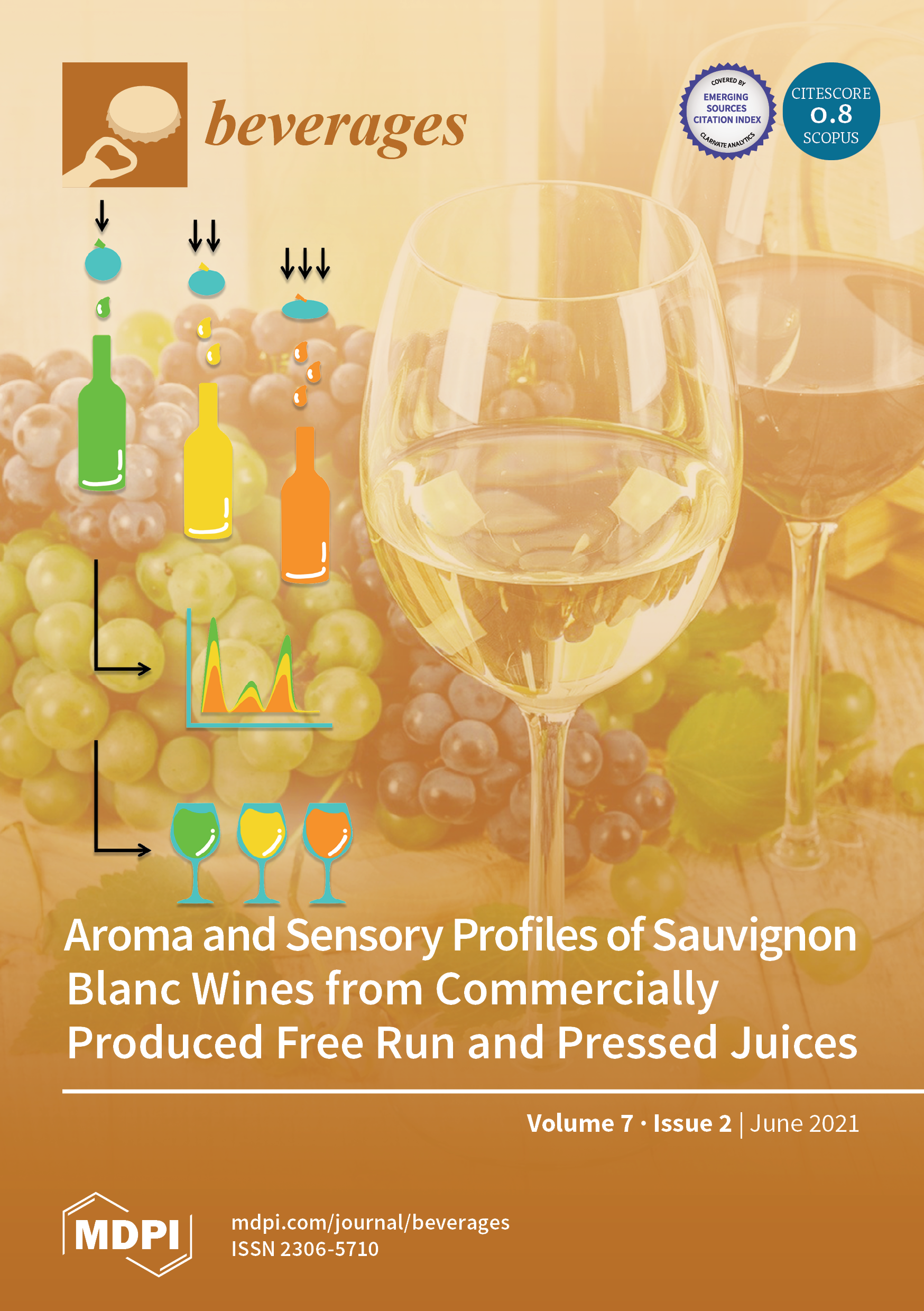
Systematic Review
Among the health benefits of green tea are: anticarcinogenic, anti-inflammatory, antimicrobial, and antioxidant properties, and benefits in cardiovascular disease and oral health.
Wanda C. Reygaert

Systematic Review
Cocoa consumption has strong beneficial impacts on cardiovascular health, reducing blood pressure, improving vascular function, and modulating lipid and glucose metabolism.
Ludovici V, Barthelmes J, Nägele MP, Enseleit F, Ferri C, Flammer AJ, Ruschitzka F, Sudano I

Review Article
Previous records suggest pleiotropic pharmacological activities of capsaicin such as an analgesic, anti-obesity, anti-pruritic, anti-inflammatory, anti-apoptotic, anti-cancer, anti-oxidant, and neuro-protective functions. Emerging data indicate its clinical significance in treating vascular-related diseases, metabolic syndrome, and gastro-protective effects.
Basith S, Cui M, Hong S, Choi S
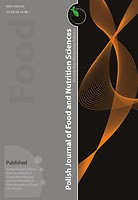
Review Article
Goji berries, classified as superfruits, possess potential beneficial implications in the dietary prevention of diseases like diabetes, cardiovascular diseases, and cancer.
Kulczyński B, Gramza-Michałowska A

Randomised Controlled Trial
Montmorency tart cherry juice intake can significantly lower systolic blood pressure in men with early hypertension, with improvements linked to phenolic acids.
Keane KM, George TW, Constantinou CL, Brown MA, Clifford T, Howatson G
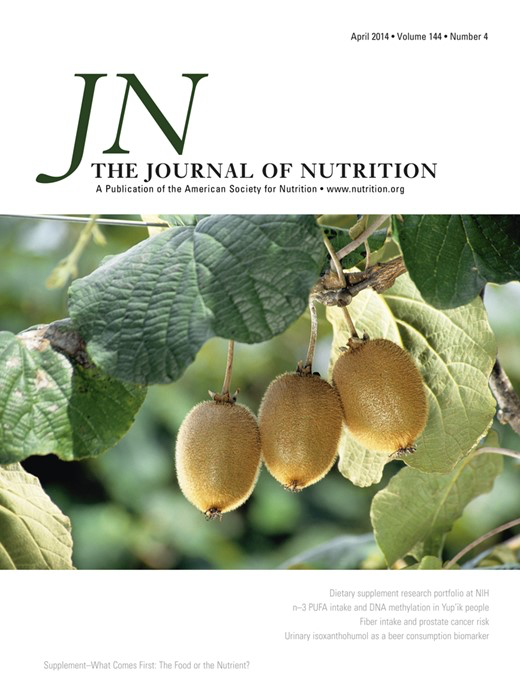
Randomised Controlled Trial
Dietary omega-3 intake shows promise in lowering systolic blood pressure.
Minihane AM, Armah CK, Miles EA, Madden JM, Clark AB, Caslake MJ, Packard CJ, Kofler BM, Lietz G, Curtis PJ, Mathers JC, Williams CM, Calder PC
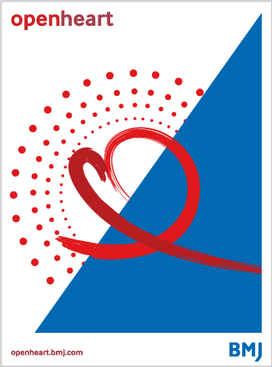
Systematic Review
Clinically, ingestion of capsaicin-or its less stable non-pungent analogue capsiate-has been shown to boost metabolic rate modestly.
McCarty MF, DiNicolantonio JJ, O'Keefe JH
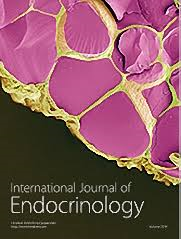
Animal Study
Regular intake of mineral-rich water, high in sodium bicarbonate, potassium, calcium, and magnesium, potentially reduces risk of Metabolic Syndrome and atherosclerotic cardiovascular disease.
Pereira CD, Severo M, Araújo JR, Guimarães JT, Pestana D, Santos A, Ferreira R, Ascensão A, Magalhães J, Azevedo I, Monteiro R, Martins MJ

Systematic Review
Regular chocolate or cocoa consumption, rich in flavan-3-ols, has been associated with improved insulin resistance and blood vessel function, suggesting potential cardiovascular benefits.
Hooper L, Kay C, Abdelhamid A, Kroon PA, Cohn JS, Rimm EB, Cassidy A

Experimental Study
Pomegranate polyphenols have notable antioxidant and antiatherogenic effects that lessen cholesterol, oxidized lipids accumulation, and atherosclerosis development in arterial macrophages.
Aviram M, Rosenblat M
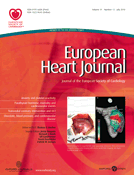
Cohort Study
Chocolate consumption appears to lower cardiovascular disease risk, in part through reducing blood pressure.
Buijsse B, Weikert C, Drogan D, Bergmann M, Boeing H
Executive Summary
Write an executive summary in the form of a blog article on the topic of "Research into Chinese medicine treatment for Vascular Disease" summarising the research below and using language that can be easily understood by patients and avoiding medical jargon using a professional and caring tone of voice.
Write an executive summary in the form of a blog article on the topic of "Researched Chinese medicine treatments for Vascular Disease" summarising the research below in an objective and easy to understand way, and using language that can be easily understood by patients. Group the article into Chinese medicine treatments first, followed by nutrition and other treatments. Avoid using medical jargon and use a professional and caring tone of voice.
Write me a concise but easy to understand executive summary on the topic of "Chinese medicine treatments for Vascular Disease" based on the following research that I will give you. Your summary should be 2 paragraphs long in Australian English spelling and include references to the studies.
A Review Article published in 2024 in the journal Foods found that Jujube, a Chinese native plant with numerous active components, exhibits calming effects, nourishes blood, and strengthens the spleen and stomach, alongside promising neuroprotective and cardiovascular benefits. This study statistically evaluated and tracked the research status of Jujube over the past two decades. The research observed, among other things, the plant's traditional use in calming nerves, nourishing blood, and strengthening the spleen and stomach in traditional Chinese medicine. The study found that the Jujube has numerous effective components, including polysaccharides, phenols, and triterpene acids. The study delved into understanding how these components can provide a variety of pharmacological activities. Such activities include neuroprotection, as well as the prevention and treatment of cardiovascular diseases. The study also expounded comprehensively the molecular mechanisms and efficacies of Jujube. The research, therefore, provides an exhaustive appraisal of the pharmacological potentials of the Jujube plant and its prospective industrial relevance in food and pharmaceutical industries.
A Review Article published in 2023 in the journal Nutrire found that Almond consumption has beneficial impacts on cardiovascular diseases, diabetes, obesity, and it can improve cognitive performance and protect against skin aging. The methodology employed in this study included analyzing a range of clinical studies centered on the health benefits linked to the consumption of sweet almond nuts. Various health outcomes correlated with almond consumption were investigated such as body weight, food intake, blood pressure, blood lipid composition, glucose and insulin levels, oxidative status, liver enzymes, and some inflammation biomarkers. The discussion of the results reveals that almond consumption has been found to create favorable alteration in aspects like body weight, food intake, blood pressure, blood lipid composition, glucose, and insulin levels, as well as oxidative status, liver enzymes, and inflammation biomarkers. These findings highlight the beneficial impact of almonds on multiple health issues including cardiovascular diseases, diabetes, and obesity. Additionally, the consumption of almonds has been associated with improved cognitive performance and protection against skin photodamage and aging.
A Review Article published in 2023 in the journal International Journal of Food Properties found that Plums, which are rich in bioactive compounds, antioxidants, and vitamins, can help maintain blood glucose level, bone health, heart health and even treat certain cancers. The research explored the health benefits and medicinal effects of plums, a common fruit belonging to the Prunus genus. The study focused not only on their consumption as a food source but also their uses in beverages. Special attention was given to the polyphenolic compounds, bioactive compounds, and antioxidants inherent in plums, such as phenolic acids, anthocyanins, carotenoids, and various organic acids, alongside an array of necessary minerals and vitamins. Apart from detailing traditional nutritional components, the study analyzed the unique constituents of plums like caffeic acid, chlorogenic acid and other phenolic compounds which contribute to its antioxidant property. The broader health benefits provided by these compounds spanning bone health, cardiovascular health, blood glucose stabilization, and potential impacts on gastrointestinal diseases were studied, with a particular emphasis on their possible role in the prevention and treatment of heart disease and specific kinds of cancer: lung and oral. The role of plums' low fat and high dietary fibre content in heart disease prevention was of special focus.
A Systematic Review published in 2023 in the journal Nutrients found that Natural calcium-rich mineral waters offer a bioavailable calcium source, beneficial for bone health, cardiovascular function, weight management, and overall well-being. This systematic review analyzed peer-reviewed articles, clinical trials, and experimental studies from the past decade. It focused on the health benefits of calcium-rich mineral waters, especially for individuals with lactose intolerance or on plant-based diets. The review process assessed the contribution of these waters to daily calcium intake and their bioavailability compared to other calcium sources. The review found that natural mineral waters high in calcium can significantly enhance calcium intake, with improved absorption rates. These waters show promise in promoting bone health and cardiovascular function, including potential reductions in blood pressure and cardiovascular disease risk. Some evidence suggests benefits in weight management. However, the review highlighted the need for further research on interactions with other dietary components, effects on specific health conditions, and long-term consumption impacts. Despite these gaps, calcium-rich mineral waters are recognized as a valuable dietary calcium source for a diverse population.
A Review Article published in 2023 in the journal Antioxidants found that Pomegranate and its components could offer considerable potential as dietary supplements or supports in treatment for cardiovascular and non-cardiovascular diseases. The review examines a myriad of recent preclinical and clinical studies focusing on pomegranate. To harness the health benefits of pomegranate, different components were extracted and studied. These include juice from the fruit's edible arils, oil from the seeds, and bioactive products from the typically discarded peel. The research also considers advances in encapsulation and green extraction techniques to optimize the use of waste pomegranate products. The studies suggest promising beneficial effects of pomegranate in diverse areas. Though challenges remain, such as limited oral bioavailability and uncertainty concerning the role of active metabolites, the collective findings offer crucial insight into the significant potential of pomegranate as a dietary supplement or co-therapy for a range of diseases, especially cardiovascular and non-cardiovascular ones.
A Cohort Study published in 2023 in the journal Journal of the American Heart Association found that Heavy coffee consumption increases the risk of cardiovascular disease mortality in individuals with severe hypertension, while green tea consumption does not. With the use of the Japan Collaborative Cohort Study, researchers assessed 18,609 participants, both male and female, aged between 40 to 79 years. These participants had varying blood pressure levels, categorized into optimal and normal BP, high-normal BP, and two stages of hypertension. They completed a questionnaire about their lifestyle, diet, and medical history, and underwent health examinations, which were followed up until 2009. The association of coffee and green tea consumption on cardiovascular disease mortality was then calculated using a Cox proportional hazard model. It was found over an 18.9 year follow-up period that heavy coffee consumption was linked to increased risk of cardiovascular disease mortality among those suffering from the second to third grade of hypertension. In stark contrast, people with optimal and normal, high-normal blood pressure and first grade hypertension did not show such associations between coffee consumption and cardiovascular disease mortality. Interestingly, the risk of cardiovascular disease mortality was not found to be increased across any blood pressure categories in relation to green tea consumption.
A Review Article published in 2023 in the journal Pharmacological Research found that Consumption of tea and coffee may possibly provide anti-inflammatory effects, contributing to reduced cardiovascular risk and mortality. The methodology of this narrative review examined the potential anti-inflammatory properties of consuming tea and coffee as a factor in reducing the risk of cardiovascular disease. This was done by analyzing a plethora of studies and meta-analyses that explored the impact of diet on inflammation, with a keen focus on the consumption of these beverages. The studies looked at a variety of risk factors for atherosclerotic cardiovascular disease, including inflammation biomarkers such as C-reactive protein, along with the impact of modern lipid-lowering treatments. In discussing the results, it was noticed that inconsistent findings were produced from the analysed studies which made a conclusive determination challenging. However, a trend was observed where drinking tea and coffee seemed to raise adiponectin levels, reduce reactive oxygen species and lower low-density lipoprotein cholesterol levels. Despite these potential anti-inflammatory properties of tea and coffee being somewhat uncertain due to various confounding factors, their consumption is still recommended as part of a healthy diet.
A Systematic Review published in 2022 in the journal Journal of the Academy of Nutrition and Dietetics found that Avocado consumption may lead to a reduction in total cholesterol and low-density lipoprotein cholesterol levels in people with high cholesterol without impacting body weight. The study reviewed the impact of diets containing avocado on cardiometabolic risk factors compared with diets containing no or low amounts of avocado. Five electronic databases were searched aiming to identify studies published between 1990 and 2021. The selected studies included randomized controlled trials of three weeks or more and prospective cohort studies. In total, ten studies, nine controlled trials, and one observational study, met the inclusion criteria. Risk of bias was evaluated, and overall quality of the evidence was inspected. Meta-analyses were performed when there were three or more studies of the same design reporting the same outcome. Upon reviewing the results, the study found a minor, noteworthy reduction in total cholesterol levels in the avocado group as opposed to the control groups. There was no significant difference found in low-density lipoprotein cholesterol, high-density lipoprotein cholesterol, or triglycerides. However, in populations with hypercholesterolemia, avocado consumption demonstrated significant reductions in both total cholesterol and low-density lipoprotein cholesterol levels. It is also worth noting that consumption of avocados did not negatively affect body weight or composition.
A Review Article published in 2022 in the journal Trends in Cardiovascular Medicine found that Consuming 2-3 cups of coffee daily can help prevent cardiovascular disease and drinking at least 3 cups of green tea has similar benefits. In this review, researchers examined the effects of habitual coffee and tea consumption on cardiovascular disease (CVD) prevention. Specifically, they studied the association between 2-3 cups of coffee or tea consumed daily and their beneficial effects on metabolic syndrome, including hypertension and diabetes mellitus, focusing on how these popularly consumed beverages might affect lipid levels. The analysis of findings drew a correlation between moderate coffee intake and a reduced risk of several cardiovascular conditions, such as coronary heart disease, heart failure, arrhythmia, stroke, and CVD, in addition to lowering mortality from all causes. It was also noted that the benefits extended to higher tea consumption as well, particularly in the case of green tea, where it led to improved survival rates in population-based studies.
A Randomised Controlled Trial published in 2022 in the journal The American Journal of Clinical Nutrition found that Cocoa extract supplementation in older adults reduced cardiovascular disease related death rates, but did not significantly lessen total cardiovascular events. A randomized, double-blind, placebo-controlled trial was conducted on 21,442 US adults aged 60 or over, all of who were free of major cardiovascular disease and recently diagnosed cancer. The participants were assigned to either a cocoa extract supplement, which included 500 mg flavanols per day, or a placebo. The intervention phase ran from June 2015 to December 2020. The primary outcome was focused on the number of total cardiovascular events, including myocardial infarction, stroke, and cardiovascular death among others. The results showed that during a median follow-up of 3.6 years, there were 410 participants taking cocoa extract and 456 under placebo who had confirmed total cardiovascular events. Secondary endpoints showed reduced death due to cardiovascular disease for the cocoa extract supplement users. However, there was no significant impact on the incidence of total cardiovascular events. Conversely, a lower risk of total cardiovascular events was supported when analyses were censored at nonadherence. Overall, no safety concerns were raised during the trial.
A Cohort Study published in 2022 in the journal Journal of the American Heart Association found that Eating more avocados, specifically two servings a week, is associated with a significantly lesser risk of cardiovascular disease and coronary heart disease. The research analysis included 68,786 women from the Nurses' Health Study and 41,701 men from the Health Professionals Follow-up Study, who were free of cancer, coronary heart disease, and stroke at the start. Their diet was assessed using validated food frequency questionnaires at the start and then every four years. The researchers used Cox proportional hazards regressions to estimate hazard ratios. Over three decades of follow-up, 14,274 new cases of cardiovascular disease were documented, including 9,185 coronary heart disease events and 5,290 strokes. After adjusting for lifestyle and other dietary factors, it was found that compared to non-consumers, those who had higher avocado intake exhibited a lower risk of cardiovascular disease and coronary heart disease. No significant associations for stroke were detected. Furthermore, it was noted that replacing half a serving per day of certain fatty foods with equivalent amounts of avocado was linked with lower risk of cardiovascular disease.
A Review Article published in 2022 in the journal Applied Sciences found that Purple carrot roots, rich in bioactive compounds like anthocyanin, may be effective in preventing metabolic syndrome and cancer by reducing inflammation and metabolic changes. The methodology employed in the research deeply studies the role of purple carrot’s main bioactive compounds against metabolic syndrome and cancer. The main focus lies on anthocyanin, a phenolic compound present in purple carrot roots. This natural food source was shifted towards as a healthier nutritional approach instead of dietary supplements. The research leans on the effectiveness of these compounds in evading or delaying the onset of cardiovascular diseases, obesity, diabetes, and cancer by inhibiting inflammatory effects. The discussion primarily surrounds the role of bioactive compounds found in purple carrots, specifically anthocyanin, in their potential prevention of metabolic syndrome and cancer. The study focused on how these components could disrupt the onset of cardiovascular disease, obesity, diabetes, and similar health issues. The results suggest that these compounds were successful in decreasing metabolic changes and inflammation. It has been suggested that purple carrots' inherent components might serve as a major tool in the prevention and treatment of metabolic syndrome and cancer.
A Systematic Review published in 2022 in the journal Medicines found that Wen Dan Tang potentially treats neurological, psychiatric disorders, cardiovascular diseases, and digestive disorders, and might improve life quality in headache patients. The methodology of the study included the utilization of various online databases like PubMed, Medline, Cochrane Library, AcuTrials, Embase, Semantic Scholar, Jstor, and internet research. The study also involved reviewing ancient and modern Chinese medical textbooks. The research noted that while there were no dedicated studies on Wen Dan Tang in the context of migraine and tension-type headaches, it gathered and examined data for each compound found in the formula. The discussion of the results revealed the therapeutic potential of the bioactive compounds present in Wen Dan Tang. This was especially in the case of patients with neurological and psychiatric disorders, cardiovascular diseases, metabolic syndrome, and digestive disorders. Additionally, the correlations between Wen Dan Tang and the reduction of headaches were explored. A potential improvement in the quality of life was highlighted, especially for patients suffering from migraines and tension-type headaches.
A Review Article published in 2022 in the journal Nutrients found that Apple juice consumed in moderation has been found to positively impact markers of cardiovascular health, potentially influencing risk of cancer and neurodegenerative diseases. The methodology of this review involved examining 67 studies focused on the health implications of apple juice consumption, with special attention given to 20 interventional studies conducted on humans. The bulk of the examined studies looked at potential effects relating to oxidative stress markers, with some also looking at effects on inflammatory markers, lipid profile, and diabetes markers. The analysis of the results highlighted a noticeable association between the consumption of cloudy apple juice and markers revealing good cardiovascular health. The positive effects were especially significant in relation to oxidative stress. In addition, apple juice also exhibited beneficial influence on other health indicators like inflammation, lipid profile, and diabetes.
A Meta-Analysis published in 2022 in the journal European Journal of Nutrition found that Oat supplementation interventions can improve cardiovascular health markers among adults, regardless of their diet or metabolic conditions. The methodology involved analyzing various randomized clinical trials that tested how oats, or extracts rich in oat beta-glucan and avenanthramides affected markers of cardiovascular disease risk. The sample population was predominantly subjects with high cholesterol, obesity, and mild metabolic disturbances. Interventions were compared to control arms without oats. In the discussion on results, it was found that subjects receiving the oat supplementation had improved health metrics such as total cholesterol, LDL cholesterol, glucose levels, body mass index, weight, and waist circumference. However, when the oat supplementation was compared to heterogeneous interventions, like wheat, eggs, rice, etc., reductions in the levels of glycated haemoglobin, diastolic blood pressure, HDL cholesterol, and apolipoprotein B were also seen. Despite these promising results, there were some concerns around the bias risk associated with the majority of included randomized clinical trials.
A Review Article published in 2021 in the journal Nutrients found that Fresh Hass avocados have been found to reduce cardiovascular disease risk, assist weight loss, improve cognitive function, and promote colonic microbiota health. The methodology used in this comprehensive review entailed conducting 19 clinical trials, five observational studies, and examination of several biological mechanisms. These focused on understanding and identifying the primary health effects of Hass avocados in different population groups such as healthy overweight or obese adults, older normal-weight adults, and overweight or obese women. The effects were thoroughly measured in terms of cardiovascular health, body weight, cognitive function, and colonic microbiota health. The primary health effects of Hass avocados were then linked to its unique nutritional properties - the unsaturated to saturated fat ratio, the presence of multifunctional prebiotic and viscous fiber, its low energy density, and the increase in carotenoid absorption facilitated by its oleic acid and water emulsion, particularly when combined with low-fat fruits and vegetables. The results indicated significant positive effects from consuming Hass avocados, especially when incorporated into a healthy dietary plan like the Mediterranean diet. Consumption of avocados was found to lead to reduced cardiovascular disease risk in healthy overweight or obese adults, primarily by undesirable cholesterol profiles and promoting vascular health. For overweight or obese women, it helped in weight reduction and lessened visceral fat tissue. The consumption of avocados improved cognitive function in both older normal-weight adults and young to middle age overweight adults, particularly their executive function. It was also found to enhance colonic microbiota health in overweight or obese individuals by fostering healthier microflora and fecal metabolites.
A Systematic Review published in 2021 in the journal Nutrition, Metabolism and Cardiovascular Diseases found that Drinking coffee may be linked to lower mortality risk in type 2 diabetes patients. In this study, the researchers conducted an exhaustive literature search through PubMed, Scopus, and Web of Sciences up to November 2020. They were looking for prospective cohort studies that evaluated the link between coffee consumption and the risk of cardiovascular disease and mortality in patients with type 2 diabetes. Two reviewers took on the work of extracting relevant data and assessing the certainty of evidence using the GRADE approach. A random-effects model was deployed to estimate hazard ratios. Dose-response connections were modeled using a one-stage mixed-effects meta-analysis. The researchers included ten prospective cohort studies that totalled 82,270 cases. The results showed an interesting trend: compared to those who did not consume coffee, the hazard ratios were consistently lower for mortality outcomes and cardiovascular disease, especially where the consumption rate was four cups per day. Importantly, no such association was found for either cancer mortality or stroke. The evidence suggested a potential inverse monotonic association between coffee drinking and mortality across all causes and cardiovascular disease, alongside a linear association for coronary heart disease and total cardiovascular events. The degree of certainty in these results was moderate for all-cause mortality, but was low or very low for all other reported outcomes.
A Cohort Study published in 2021 in the journal Aging found that Regular consumption of chocolate relates to lowered risk of death from all causes, cardiovascular disease, and Alzheimer’s disease, particularly in non-smokers. The study traps a population-based cohort of 91,891 participants aged between 55-74 years from across the United States. The consumption of chocolate by these participants is gauged through a food frequency questionnaire. The Cox regression model was utilized to generate risk estimates. In an average monitoring period of 13.5 years, 19,586 all-cause deaths were recorded. In the discussion of the outcomes, the study reveals an inverse correlation between regular chocolate intake and all-cause mortality. This advantage was more significant in those participants who never smoked compared to current or ex-smokers. A stronger inverse association was found for deaths from cardiovascular disease and Alzheimer's disease. A nonlinear dose-response pattern was discovered for all-cause and cardiovascular deaths, with the least risk seen at a chocolate intake of 0.7 and 0.6 servings per week, respectively.
A Systematic Review published in 2021 in the journal The American Journal of Medicine found that Coffee consumption, particularly boiled coffee, may increase levels of certain cardiovascular risk markers, but no strong link was found to anti-inflammatory effects. Methodically considering pre-selected databases such as PubMed, Embase, CINAHL and more, this study rigorously searched for randomized controlled trials to analyse the impacts of coffee consumption on inflammatory indicators of cardiovascular risk. Duplicate data and trials that did not meet the study's criteria were removed. The remaining 17 studies that passed scrutiny were included in the analysis, looking particularly at effects of coffee on cholesterol levels, apolipoprotein B levels and interleukin 6 levels. This comprehensive review resulted in interesting findings. Boiled coffee emerged as a potential culprit for increased levels of total and low-density lipoprotein cholesterol along with apolipoprotein B. Filtered coffee, on the other hand, did not show similar trends. In one trial, caffeinated coffee showed a noteworthy increase in blood interleukin 6 levels compared to participants who did not consume coffee. However, no robust anti-inflammatory effects connected to coffee consumption could be confidently ascertained to be a significant factor in reducing mortality rates related to cardiovascular disease.
A Review Article published in 2021 in the journal Journal of Ethnopharmacology found that Pomegranate has a variety of phytochemicals which possess wide-ranging activities including antioxidant, antimicrobial, anti-oncogenic properties, and resistance to cerebrovascular disease. The paper presents an overview of the traditional medicine theories of pomegranate, its origin and spread along the Silk Road, ethnopharmacological uses, chemical compositions, pharmacological activities, toxicology, and the involved pathways. Information was collected from various published sources like ancient and modern texts, medicinal plant monographs, pharmacopoeias and diverse electronic databases. Pomegranates, being widely cultivated in Central Asia and having spread throughout China via the Silk Road, have had significant usage in many traditional medical systems over time. They are identified to contain a vast array of phytochemicals like tannins, organic acids, flavonoids, alkaloids, and volatile oils. These compounds are observed to have extensive activities such as antioxidant, antimicrobial and anti-oncogenic properties, and also provide resistance to cerebrovascular disease. The research additionally presents a summary of the promising pharmacological pathways linked with pomegranate.
A Systematic Review published in 2021 in the journal Angiology found that Epidemiological studies suggest that the consumption of spicy chilli food is associated with reduced risk of all-cause as well as heart disease–related mortality. This systematic review and meta-analysis examined the association between spicy food (chilli pepper, chilli sauce, or chilli oil) consumption with cardiovascular and all-cause mortality. Medline and EMBASE were searched from their inception until February 2020 to identify relevant prospective cohort studies. Hazard ratios (HRs)/relative risk (RRs) were pooled via random-effect meta-analysis. Of the 4387 citations identified, 4 studies (from the United States, China, Italy, and Iran) were included in the meta-analysis. The included studies involved a total of 564 748 adults (aged ≥18 years; 51.2% female) followed over a median duration of 9.7 years. The pooled data suggested that compared with people who did not regularly consume spicy food (none/<1 d/wk), regular consumers of spicy food experienced a 12% (HR/RRpooled 0.88, 95% CI, 0.86-0.90; I 2 = 0%) lower risk of all-cause mortality. Moreover, spicy food consumption was associated with significant reduction in the risk of death from cardiac diseases (HR/RRpooled 0.82, 0.73-0.91; I 2 = 0%), but not from cerebrovascular disorders (HR/RRpooled 0.79, 0.53-1.17; I 2 = 72.2%). In conclusion, available epidemiological studies suggest that the consumption of spicy chilli food is associated with reduced risk of all-cause as well as heart disease–related mortality. Further studies in different populations are needed to confirm this association.
A Review Article published in 2020 in the journal Evidence-Based Complementary and Alternative Medicine found that Tian Ma, a traditional Chinese medicine, shows promise as a complementary therapy for aging-related diseases, including Alzheimer's and cerebrocardiovascular diseases. This study utilized previous research to methodically analyze the efficacy and safety of Tian Ma in treating aging-related diseases. Investigations spanned across various well-structured disease models, with particularly close attention paid to Alzheimer's Disease. The study trialed not just on its raw form, but also explored how it performs within different herbal preparations and as pure natural extracts. The study's findings indicate that Tian Ma might present a viable alternative treatment for aging-related cerebrocardiovascular diseases and dementia. Specifically, its promising attributes were most noticeable in the context of complementary therapy for Alzheimer's Disease. The potential effectiveness of Tian Ma seems to be maintained across the various preparations, whether in herbal mixtures or as a pure natural product. The study thus concludes on a hopeful note regarding the use of Tian Ma in combatting debilitating age-linked conditions.
A Review Article published in 2020 in the journal International Journal of Molecular Sciences found that Regular coffee consumption, due to its bioactive compounds, may have protective effects against chronic disorders and certain neurodegenerative conditions. The paper evaluates the neuroprotective potential of the main bioactive elements in coffee: caffeine, chlorogenic acid, caffeic acid, trigonelline, kahweol, and cafestol. The analysis is focused on the coffee beverage as a complex mixture of these bioactive compounds. The comprehensive study includes in vitro and in vivo preclinical tests to determine the specific health benefits each of these compounds can offer. The results indicate that regular coffee intake may have defensive effects against a variety of enduring disorders; including cardiovascular disease, type 2 diabetes, obesity, and some forms of cancer. Additionally, an interesting correlation is found between coffee consumption and a lower risk of developing certain neurodegenerative conditions such as Alzheimer's disease, Parkinson's disease, and dementia. The study also highlights that regular coffee intake could possibly lower the risk of stroke. However, the study mentions that the mechanisms enabling these effects are yet to be fully understood.
A Randomised Controlled Trial published in 2020 in the journal Journal of Medicinal Food found that Daily consumption of tart cherry juice may reduce processes involved in accelerated atherogenesis, potentially decreasing the risk of cardiovascular diseases. In this randomized, single-blind, placebo-controlled, parallel-arm pilot clinical trial, 19 men and women aged between 20 to 60 years who have metabolic syndrome participated. They were assigned to consume either 240ml of tart cherry juice or an isocaloric placebo-control drink twice daily for a period of 12 weeks. Initial evaluations on arterial stiffness (determined through pulse wave velocity), brachial and aortic blood pressures, wave reflection or augmentation index, and blood markers for cardiovascular and metabolic health were established as their baseline values. Despite observing no significant alterations in hemodynamics, arterial stiffness, or other assessed blood biomarkers, there was a noted decrease in oxidized low-density lipoprotein and soluble vascular cell adhesion molecule-1 levels in the tart cherry juice group compared to the control group at the end of 12 weeks. In addition, there was a trending lower total cholesterol level in the tart cherry group versus the control at the end of the trial. These results suggest that daily tart cherry juice consumption may help decrease processes involved in the rapid progression of atherogenesis.
A Randomised Controlled Trial published in 2020 in the journal Journal of the American College of Cardiology found that Incorporating daily doses of walnuts into the diet of elderly individuals significantly reduces the concentrations of several inflammatory biomarkers. This study followed the WALHA study protocol and involved 708 elderly participants from two centers, one in Barcelona, Spain, and another in Loma Linda, California. They were randomly assigned into two groups: one group incorporated walnuts, at least 15% of energy (30 to 60g per day), into their diets, while the other group abstained from walnuts. The participants visited dietitians every two months for advice to maintain their allocated diets and physical activity level. The walnut group received 8-week allotments of raw-piece walnuts in sachets for daily consumption. The researchers conducted assessments of inflammatory biomarkers at the start and end of this 2-year study. Differences in the changes of inflammatory markers between diets were analyzed using multivariate-adjusted analysis of covariance. Of the 634 participants who completed the study, 66% were women and 32% were on statins. The average age was 69 years. There were no changes in body weight throughout the trial. Incorporation of walnuts into the diet resulted in significantly reduced concentrations of six out of ten examined biomarkers. Changes in inflammatory molecules were not related to changes in the main food groups.
A Review Article published in 2020 in the journal Journal of Ethnopharmacology found that Juhua, the flower head of Chrysanthemum morifolium Ramat, possesses multiple medicinal properties and has a significant role in dietary herbal medicine in China. The study gathers information about Chinese dietary herbal medicine and flower-derived medicine, focusing on Juhua, from varied sources such as government reports, classic books of Traditional Chinese medicine, doctoral and master's theses, and various databases. The methodology includes summarizing all flower-originated crude medicines listed in Chinese pharmacopeia and their applications for the first time, retracing the edible history and development of flowers in China, discussing the theory of Chinese dietary herbal medicines, and examining flowers as dietary herbal medicines. Discussion of the results highlights applications in Traditional Chinese medicine and diet, cultivars, phytochemistry, quality control, and pharmacology of Juhua. A safety evaluation of Juhua, along with an overview of chrysanthemum breeding and biotechnology, are included in the findings. The study determines that many herbal flowers, particularly Juhua, have considerably contributed to the prevention and treatment of various diseases in China.
A Meta-Analysis published in 2020 in the journal Complementary Therapies in Medicine found that Supplementation with blueberry shows a potential for beneficial impact on reducing body weight, which might indirectly influence cardiovascular disease risk factors. The methodology involved searching various digital databases such as ISI Web of Science, Scopus, PubMed, and Cochrane Library in March 2020. The researchers looked for all randomized and controlled clinical trials that used blueberry supplements to modify cardiovascular disease risk factors. Inclusion criteria were not restricted by language. References lists from primary studies and review articles were also checked for any additional studies. The results showed that although blueberry supplementation had a small, insignificant effect in reducing plasma triglycerides, there were no differences found between blueberry and control groups for any other cardiovascular disease risk outcomes. However, subgroup analysis indicated a potential favorable impact of blueberry on reducing body weight. It was found that studies lasting longer than 6 weeks or those that used blueberry powder or freeze-dried blueberry were indicative of significant weight loss.
A Systematic Review published in 2020 in the journal European Journal of Clinical Nutrition found that The literature overall supports an inverse association between green tea and cardiovascular disease-related health outcomes, while the included meta-analyses generally suggested an inverse association between green tea and BMI-related and blood pressure outcomes. The evidence on green tea consumption and health outcomes presented in this review suggests green tea may be favorable for cardiovascular disease, particularly stroke, and certain cancers such as endometrial, esophageal, lung, non-Hodgkins lymphoma, oral, and ovarian cancer. More evidence is needed to assess the impact of green tea on breast, gastric, and liver cancer risk. Additional studies could also help clarify the suggested null association with certain cancer sites: colorectal, pancreatic, and prostate cancer. Possible minor adverse events on health from green tea consumption were reported in one study, however these must be interpreted cautiously within the study context and possible finer dose-response implications. The findings for green tea and diabetes risk were inconclusive. For BMI the current evidence suggests a possible weak association, while the evidence is stronger supporting a decrease in blood pressure from green tea. More studies investigating a possible association between green tea consumption and other health outcomes such as cognition, injuries, respiratory disease would be informative to more completely assess the impact of green tea on human health. In conclusion, our review suggests green tea may have health benefits especially for cardiovascular disease and certain cancer sites.
A Randomised Controlled Trial published in 2020 in the journal Phytotherapy Research found that Concentrated pomegranate juice consumption can potentially lower cardiovascular disease risk factors in women with polycystic ovary syndrome. The study used a randomized clinical approach, enrolling 44 women identified with polycystic ovary syndrome, aged 18 to 40 years and above a certain body weight index. These participants were randomly divided into two groups: one group was given concentrated pomegranate juice (CPJ), while the other served as a control. Both groups were monitored over a period of 8 weeks, with baseline measurements taken for anthropometric measures, blood pressure, and biochemical parameters set at the onset and then compared at the end of the trial. Upon completion, the group that consumed CPJ showed reductions in blood pressure and serum triglyceride levels — a known risk factor for cardiovascular diseases. There was also an increase in the amount of high density lipoprotein-cholesterol (good cholesterol) and a decrease in the triglyceride to high-density lipoprotein-cholesterol ratio. However, an increase was observed in levels of low-density lipoprotein-cholesterol (bad cholesterol). No adverse events or complications arose from CPJ consumption during the study period.
A Meta-Analysis published in 2020 in the journal European Journal of Nutrition found that Chronic consumption of cranberry or cherry juice might considerably improve blood pressure levels. The review involved a comprehensive search across several databases including PubMed, Web of Science, Scopus, and psycARTICLES from the beginning until January 2020. The search results included forty-five randomized controlled trials that lasted at least a week, assessing the effects of berries, citrus, and cherries on different cardiovascular disease risk indicators. These indicators were endothelial function, blood pressure, lipid status, and inflammatory biomarkers. Different preparations of berries including juice of barberry, cranberry, grape, pomegranate, blueberry powder, grape, raspberry and freeze-dried strawberry were studied. The resulting reports showed improvements in endothelial function, inflammation markers, lipid status, and blood pressure. Among the interventions, cranberry juice and cherry juice were notably associated with a potential decrease in systolic and diastolic blood pressure. Consumption of berries led to a significant increase in the levels of sVCAM-1, a protein that is usually found higher in people with cardiovascular risk. However, no significant improvements were observed for other specified fruits in this research.
A Meta-Analysis published in 2020 in the journal Complementary Therapies in Medicine found that Pomegranate juice supplementation notably diminishes inflammation and vascular dysfunction markers in adults, offering potential cardiovascular health benefits. The research used a broad approach, systematically reviewing and performing a meta-analysis of 16 randomised controlled trials including 572 participants, as per the Preferred Items for Reporting of Systematic Reviews and Meta-Analyses guidelines. Relevant articles and references were found via the PubMed/Medline and SCOPUS databases, with screening carried out up until May 2019. The studies explored the impact of pomegranate juice supplements. The discussion reveals that pomegranate supplementation conspicuously reduced the levels of certain pro-inflammatory and vascular dysfunction markers. However, the research found no significant reduction in some other markers when compared to a placebo. Despite not all markers recording significant reduction, the overall findings strongly suggest pomegranate supplements as a viable tactic for reducing inflammation in adults, potentially offering cardiovascular health advantages.
A Review Article published in 2020 in the journal International Review of Neurobiology found that The date fruit contains compounds such as flavonoids that can protect tissues from harm and reduce risks of illnesses like cardiovascular disease and cancer. The research focused on the properties of the date palm fruit (Phoenix dactylifera), known to be rich in bioactive compounds such as polyphenols. A particular interest was given to flavonoids, a group of phytochemicals renowned for their high antioxidant capacity, and other useful traits. The study investigated the fruit's capability in protecting tissues against harmful effects, examining the interference with enzymes that prompt the formation of damaging free radicals. In the discussions, it was indicated that the date fruits were not only appreciated for their organoleptic properties but also for their biological activities. The protective properties of the fruit against harmful effects arose from flavonoids and their ability to inhibit the formation of free radicals. Flavonoid-rich date fruit consumption was suggested to correlate to a decreased risk of various diseases, including cardiovascular diseases and cancer. This aspect uplifts date fruit as a prized option for consumers seeking health benefits from their diet.
A Review Article published in 2019 in the journal Revue Neurologique found that The Mediterranean diet, especially the high consumption of extra-virgin olive oil, significantly reduces the risks of vascular diseases and Alzheimer's. The research has been based on a plethora of observational epidemiological studies, local population experiences, meta-analyses of epidemiologic data, and experimental studies, all converging to the connection between the Mediterranean diet and a reduced prevalence of different ailments. The study scopes extend over long periods, such as the Italian-American experience from 1935 to 1965, or the Seven Countries Study spanning four decades from 1960 to 2000. Another significant evidence base is the French Three-City Study, which followed participants for ten years from 2000 to 2010. Apart from human trials, the article includes results from experimental animal models, specifically concerning late-onset Alzheimer disease. The findings showcase a consistent trend linking reduction in vascular diseases, obesity, arthritis, cancer, cognitive decline, and specifically Alzheimer's disease with increased adherence to a Mediterranean dietary pattern, particularly high intake of extra-virgin olive oil. Certain dietary components such as fruits, seeds, legumes, and vegetables contribute to the benefits. However, olive oil stands out as the chief dietary fat in Mediterranean countries. It provides plentiful monounsaturated fatty acids, beneficial polyphenols, and other antioxidants, which play a crucial part in these health benefits. The most striking discovery is extra-virgin olive oil's potential to mitigate the effects of adverse vascular factors, indicating a promising approach to preventing late-onset Alzheimer's disease.
A Theoretical Article published in 2019 in the journal Frontiers in Nutrition found that Consumption of oat β-glucan may lower cholesterol and risk of cardiovascular disease by altering gut bacteria and their effects on bile acid and cholesterol metabolism. The research paper focused on studying the impact of oat β-glucan on cholesterol levels and cardiovascular disease risk. The methodology revolved around examining how consumption of oat β-glucan might change the gut microbiota, particularly bacterial species that influence bile acid metabolism and the production of short chain fatty acids. These factors are crucial regulators of cholesterol homeostasis in the host body. The research thus looked into the repercussions on bile acid metabolism, reverse cholesterol transport, short-chain fatty acid production, bacterial metabolism of cholesterol, and microbe-host signaling. The researchers found that oat β-glucan appears to have a significant effect on both the host's cholesterol levels and the composition and functionality of their gut microbiota, which in turn impacts bile acid metabolism and cholesterol homeostasis. It creates a potentially beneficial scenario where intestinal cholesterol may be removed for excretion. The results suggest that the benefits attributed to oat β-glucan are multifaceted and likely involve the regulation of complex interactions between microbes and the host at the level of the gastrointestinal interface. These novel insights demonstrate an interesting relationship between diet, gut microbiota, and host cholesterol metabolism.
A published in 2019 in the journal Plant Foods for Human Nutrition found that Results demonstrate that 100% watermelon juice is a palatable, effective means of increasing serum lycopene in older adult women, a group at risk for low carotenoid intake. Watermelon is one of the few food sources of dietary lycopene. Because heat treatment increases lycopene bioavailability, ingestion of watermelon in pasteurized juice form may be an optimal delivery vehicle to increase lycopene levels in older adults. However, due to its lipophilic nature, there are concerns that co-ingestion of dietary fat may be necessary for efficient intestinal absorption of lycopene. Thus, this feasibility study aimed to examine the effects of a one-time dose of 100% pasteurized watermelon juice on circulating lycopene concentrations of postmenopausal women after a 10-h overnight fast. Blood was sampled from eight women before and 2 h after ingestion of 360 ml of juice, and serum lycopene was measured by ultra-high performance liquid chromatography. Circulating lycopene levels increased by three-fold (p < 0.001) with increases observed for every participant.
A Randomised Controlled Trial published in 2019 in the journal Bioscience, Biotechnology, and Biochemistry found that Adzuki bean extract administered once a day can result in increased HDL-C concentration. This finding suggests that adzuki bean polyphenols are a novel food ingredient capable of maintaining lipid homeostasis by modulating the HDL-C levels, without causing any adverse effects. This short-term study represents the first step in establishing the practicality, safety, and HDL-C-maintaining effects of adzuki bean extract in subjects with moderate-to-high LDL-C levels.
A Systematic Review published in 2018 in the journal Current Opinion in Clinical Nutrition and Metabolic Care found that Most bioactive walnut micronutrients synergize to affect multiple metabolic pathways leading to protection from chronic noncommunicable diseases. Nuts in general and walnuts in particular are in the limelight for the association of their consumption with improved health outcomes. Walnuts have an optimal composition in bioactive nutrients and recent clinical and experimental studies have uncovered a number of beneficial effects of walnut micronutrients, working in isolation or in concert, on metabolic pathways and clinical outcomes that make this review timely and relevant. Alpha-linolenic acid, a critical walnut component, is metabolized into bioactive oxylipins, has been shown to protect microglial cells from inflammation, and is associated with lower fatal myocardial infarction rates through a putative antiarrhythmic effect. Phytosterols relate to the cholesterol-lowering effect of nut consumption. Nonsodium minerals are associated with better cardiometabolic health. Walnut phytomelatonin has anticancer effects that are shared by the main walnut polyphenols and their metabolites, ellagitannins and urolithins, respectively. This review highlights new evidence on the health-promoting properties of walnuts and their main micronutrient components. The conclusion is that walnuts are optimal healthful foods.
A Systematic Review published in 2018 in the journal The American Journal of Clinical Nutrition found that Incorporating walnuts into the diet improved blood lipid profile without adversely affecting body weight or blood pressure. The present meta-analysis of controlled trials provides robust evidence for the benefits of walnut consumption on blood lipids without adversely affecting body weight or blood pressure and supports the results of epidemiologic studies showing inverse associations between walnut consumption and CVD risk. Despite walnuts being energy-dense, the consumption of walnuts does not promote weight gain and thus they can be incorporated into an overall healthy dietary pattern to enhance health benefits.
A Systematic Review published in 2018 in the journal Beverages found that Among the health benefits of green tea are: anticarcinogenic, anti-inflammatory, antimicrobial, and antioxidant properties, and benefits in cardiovascular disease and oral health. Green tea catechins have proved to be very versatile in providing health benefits. This means that there are potential health benefits for everyone in the consumption of green tea. Even moderate amounts of consumption (drinking 1–2 cups of tea per day) may have benefits. It is a very good thing that it is the second most popular beverage worldwide, as the differences in health in a world without green tea might be significant. There is fortunately a wide variety of research being performed using green tea catechins, and we are starting to see many studies performed using human subjects, as it is extremely important that we are able to show the direct benefits to humans. The expansive repertoire of green tea activity in health is important, especially to those people who live where medical assistance is not generally available or affordable.
A Systematic Review published in 2017 in the journal Frontiers in Nutrition found that Cocoa consumption has strong beneficial impacts on cardiovascular health, reducing blood pressure, improving vascular function, and modulating lipid and glucose metabolism. In the study's methodology, the link between the consumption of natural polyphenol-rich foods, specifically cocoa, and a decreased risk of cardiovascular diseases was explored. The process involved evaluating cocoa's influence on various aspects, such as blood pressure reduction, vascular function improvement, lipid and glucose metabolism modulation, and reduction of platelet aggregation. This evaluation was performed in varying demographic groups, including healthy individuals, individuals with risk factors such as diabetes and arterial hypertension, and individuals with established coronary heart diseases or heart failure. The study's findings indicate that cocoa's consumption has a significant and positive effect on cardiovascular health. Notably, it was found to reduce blood pressure, enhance vascular function, and modulate lipid and glucose metabolism. These beneficial effects were observed in all the subjects irrespective of their health status - healthy, at risk, or with established cardiovascular diseases. The results hypothesize several potential mechanisms through which cocoa exerts these positive effects, including the activation of nitric oxide synthase, increased availability of nitric oxide, and inherent antioxidant and anti-inflammatory properties.
A Review Article published in 2016 in the journal Molecules found that Previous records suggest pleiotropic pharmacological activities of capsaicin such as an analgesic, anti-obesity, anti-pruritic, anti-inflammatory, anti-apoptotic, anti-cancer, anti-oxidant, and neuro-protective functions. Emerging data indicate its clinical significance in treating vascular-related diseases, metabolic syndrome, and gastro-protective effects. Capsaicin has elicited enormous interest for several centuries due to its conspicuous culinary and clinical applications. Despite its adverse effects, capsaicin is still being used as an active principle in several pharmaceutical formulations for treating various human ailments. Moreover, emerging studies have shown that capsaicin is implicated in a broader range of functions than previously anticipated. Even though it is best characterized in the field of nociception and pain, several experimental and clinical studies also demonstrate its role in other important pathological states like cancer, obesity, skin disorders, cardiovascular diseases, etc. Additionally, it has also been implicated in other activities including treatment of the upper respiratory reflexes, prevention of adipogenesis, boosting metabolic rate, and regulation of innate and adaptive immune responses.
A Review Article published in 2016 in the journal Polish Journal of Food and Nutrition Sciences found that Goji berries, classified as superfruits, possess potential beneficial implications in the dietary prevention of diseases like diabetes, cardiovascular diseases, and cancer. The paper begins with a brief introduction of goji berries, their rich nutrient content, and the ideal conditions for their cultivation. It proceeds to delve into the berry's chemical composition and an extensive enumeration of health benefits that these chemicals can offer. The discussion of results further exemplifies how the myriad bioactive compounds found in these superfruits could potentially combat prevalent diseases of affluence such as diabetes, cardiovascular diseases, and cancer. Nonetheless, the paper also addresses safety concerns of goji consumption by discussing potentially harmful components for human health, possible allergic reactions, and interactions with other substances.
A Randomised Controlled Trial published in 2016 in the journal The American Journal of Clinical Nutrition found that Montmorency tart cherry juice intake can significantly lower systolic blood pressure in men with early hypertension, with improvements linked to phenolic acids. In a carefully controlled, blinded, crossover study employing a randomized Latin square design, fifteen male participants showing early signs of hypertension were given either a 60-mL dose of Montmorency tart cherry (MC) concentrate or a placebo. A recovery period of at least 14 days was allowed between tests to eliminate lingering effects from the previous test. Observations centred on microvascular reactivity, arterial stiffness, blood pressure, and phenolic acid absorption, and these were collected at designated intervals before and up to eight hours after consuming the MC concentrate or placebo. The analysis of the data revealed that consumption of the MC concentrate resulted in a significant reduction in systolic blood pressure in comparison to the placebo, reaching maximum impact two hours after intake. Crucially, this positive effect was found to coincide with an increase in circulating protocatechuic and vanillic acid 1-2 hours post consumption. Thus, it is suggested that the benefits of MC for cardiovascular health, particularly for blood pressure control, can be directly attributed to the influence of these circulating phenolic acids.
A Randomised Controlled Trial published in 2016 in the journal The Journal of Nutrition found that Dietary omega-3 intake shows promise in lowering systolic blood pressure. A study involving 312 participants investigated the effects of achievable dietary intake of omega-3 fatty acids, specifically eicosapentaenoic acid (EPA) and docosahexaenoic acid (DHA), on blood pressure and vascular function. Participants were divided into groups receiving different doses of EPA+DHA for 8 weeks. Overall, there were no significant effects observed. However, in individuals with isolated systolic hypertension (SHT), a clinically meaningful reduction in systolic blood pressure (5 mm Hg) was noted with a low dose of EPA+DHA (0.7 g). The study suggests that even modest omega-3 intake may have potential benefits in reducing cardiovascular risk for individuals with SHT. Further research is recommended for conclusive results.
A Systematic Review published in 2015 in the journal Open Heart found that Clinically, ingestion of capsaicin-or its less stable non-pungent analogue capsiate-has been shown to boost metabolic rate modestly. This brief overview should make it clear that dietary capsaicin—and, likely to a more limited degree, non-pungent capsiate—has intriguing potential for health promotion. Rodent studies suggest that capsaicin may merit clinical evaluation with respect to endothelial function, progression of atherosclerosis (most notably in diabetics), angina, non-alcoholic fatty liver disease, cardiac hypertrophy, metabolic syndrome, hypertension, obesity and gastric ulceration.
A Animal Study published in 2014 in the journal International Journal of Endocrinology found that Regular intake of mineral-rich water, high in sodium bicarbonate, potassium, calcium, and magnesium, potentially reduces risk of Metabolic Syndrome and atherosclerotic cardiovascular disease. Researchers conducted an experiment involving Sprague-Dawley rats, an animal model representing Metabolic Syndrome. For eight weeks, the rats consumed a diet that consisted of 10% fructose. They were also provided with a hypersaline sodium-rich naturally sparkling mineral water to drink. The saline water contained high levels of bicarbonate, potassium, calcium, and magnesium, in comparison to standard tap water, which was used as a control. The study observed various parameters, from heart rate to plasma triacylglycerols and insulin levels. It also studied hepatic (liver-based) catalase activity, leptin levels, and the weight ratios of different organs to body weight. Moreover, it took into consideration the performance of the liver's antioxidative functions by examining hepatic glutathione peroxidase activity and oxidized glutathione content. The experiment aimed to determine the effects of the mineral-derived salts in the water on these various aspects of the rat's health, and how they might mitigate the effects of the fructose-enhanced diet that simulated the physiological conditions of Metabolic Syndrome. Within the results, the scientific team found the intake of mineral-rich water attenuated the increases in heart rate, plasma triacylglycerols, leptin levels, hepatic catalase activity, and organ weight to body weight ratios that were induced by fructose. Furthermore, it prevented the reduction of hepatic glutathione peroxidase activity and oxidized glutathione content. Therefore, the team concluded that the mineral water seemed to have the potential to counteract the effects of the fructose diet, preventing the onset of Metabolic Syndrome. They suggested regular intake of such water could help improve metabolic and redox health.
A Systematic Review published in 2012 in the journal The American Journal of Clinical Nutrition found that Regular chocolate or cocoa consumption, rich in flavan-3-ols, has been associated with improved insulin resistance and blood vessel function, suggesting potential cardiovascular benefits. The study systematically reviewed 42 randomized controlled trials involving 1297 participants to investigate the impact of chocolate, cocoa, and flavan-3-ols on major cardiovascular disease risk factors. Utilizing a comprehensive search across multiple databases, the researchers conducted meta-analyses, assessing acute and short-term chronic interventions. Results revealed consistent improvements, including reduced insulin resistance (HOMA-IR), enhanced flow-mediated dilatation (FMD), and favorable effects on blood pressure and cholesterol levels. The findings indicate promising cardiovascular benefits associated with chocolate or cocoa consumption. Notably, the study highlights improvements in insulin sensitivity, blood vessel function, and blood pressure, emphasizing the potential positive impact of flavan-3-ols found in these products.
A Experimental Study published in 2012 in the journal Evidence-Based Complementary and Alternative Medicine found that Pomegranate polyphenols have notable antioxidant and antiatherogenic effects that lessen cholesterol, oxidized lipids accumulation, and atherosclerosis development in arterial macrophages. The research utilizes both in vitro and in vivo human and mouse models to explore the impact of pomegranate polyphenols. Specifically, the study investigates its effects on serum lipoproteins and arterial macrophages, two major components of atherosclerotic lesions. The study administers pomegranate juice and its by-products to the models for observational testing. The results indicate that pomegranate polyphenols significantly curtailed the accumulation of cholesterol and oxidized lipids in macrophages, as well as the formation of foam cells, a key factor in early atherogenesis. Consequently, this led to the deceleration of atherosclerosis development and its associated cardiovascular events. This suggests the potentially potent antioxidant and antiatherogenic properties of pomegranate polyphenols and their beneficial effects on cardiovascular health.
A Cohort Study published in 2010 in the journal European Heart Journal found that Chocolate consumption appears to lower cardiovascular disease risk, in part through reducing blood pressure. In this cohort of German adults, consumption of 6 g of chocolate per day was associated with a 39% lower risk of the combined outcome of MI and stroke. This was partly (for 12%) explained by baseline BP, to which chocolate consumption was also inversely related. The inverse relation of chocolate consumption appeared stronger for stroke than for MI. Finally, the inverse relations of chocolate with BP and incident CVD were observed despite lower intakes of fruit and vegetables in people consuming more chocolate.
Moderation Tools
Topic
Sign In
Users not signed in are limited to viewing the 5 most recent items of content.
